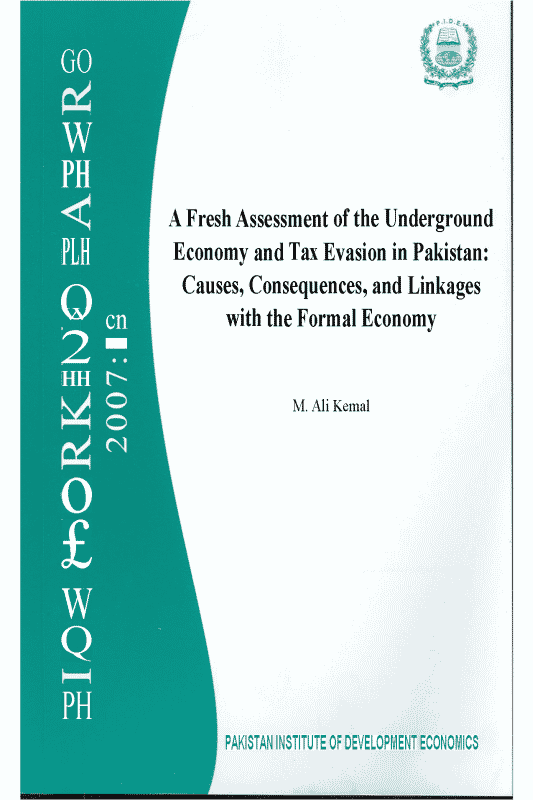A Fresh Assessment of the Underground Economy and Tax Evasion in Pakistan: Causes, Consequences, and Linkages with the Formal Economy
Rise in the underground economy creates problems for the policy-makers to formulate economic policies, especially the monetary and fiscal policies. It is found that if there was no tax evasion, budgets balance might have been zero and positive for some years and we would not have needed to borrow as much as we had borrowed. It is concluded that the impact of the underground economy is significant to the movements of the formal economy, but the impact of formal economy is insignificant in explaining the movements in the underground economy. In the long run, underground economy and official economy are positively associated. It is estimated that the underground economy ranges between Rs 2.91 trillion and Rs 3.34 trillion (54.6 percent of GDP to 62.8 percent of GDP respectively) in 2005 and tax evasion ranges between Rs 302 billion and Rs 347 billion (5.7 percent of GDP to 6.5 percent of GDP respectively) in 2005. Underground economy and tax evasion were increasing very rapidly in the early 1980s but the rate of increase accelerated in the 1990s. It declined in 1999, but reverted to an increasing trend until 2003. It declined again in 2004 and 2005.




